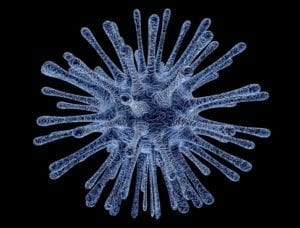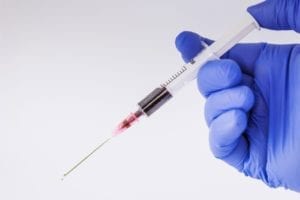Primary Hemophagocytic lymphohistiocytosis (HLH)
What is Primary Hemophagocytic lymphohistiocytosis?
Also known as HLH, Primary Hemophagocytic lymphohistiocytosis, is a condition in which the body produces too many activated immune cells (lymphocytes). The body also produces an abundance of immune system proteins called cytokines. This overactive immune system results in fever, and damages and enlarges certain internal organs.
Primary Hemophagocytic lymphohistiocytosis HLH may also be referred to as Familial Hemophagocytic lymphohistiocytosis. Five different subtypes of the condition exist based on the specific mutation responsible for its onset.
What are the symptoms of Primary Hemophagocytic lymphohistiocytosis?
Symptoms of Primary Hemophagocytic lymphohistiocytosis often develop early in life (within the first few months or years). In rare cases, symptoms may be delayed until late childhood, or adulthood. Common symptoms include:
- Fever
- Enlarged liver, spleen, and lymph nodes
- Difficulties breathing
- Abnormal kidney function
- Skin rash
- Heart problems
- Easy bruising
- Abnormal bleeding
- Increased cancer risk
What Causes Primary Hemophagocytic lymphohistiocytosis?
Primary Hemophagocytic lymphohistiocytosis may be either an inherited or acquired condition.
In the cases which are acquired, the most common causes include medicines which suppress the immune system, autoimmune diseases and immunodeficiency, and some cancers and metabolic conditions.
Inherited cases of Primary Hemophagocytic lymphohistiocytosis fall into one of five subtypes. Each type is classified by the specific gene affected. In all cases, the affected gene is one that is normally responsible for developping proteins used in regulating the immune system. Without these proteins, the immune system overproduces and this leads to the dramatic immune response responsible for the symptoms listed above.
How is Primary Hemophagocytic lymphohistiocytosis Diagnosed?
One method of diagnosing Primary Hemophagocytic lymphohistiocytosis is genetic testing. This can be used to identify the mutated genes involved in causing the condition.
Another diagnositic method used with HLH is to check for five of the eight following symptoms.
- Fever
- enlarged spleen
- low blood cell count
- increased levels of triglycerides, and decreased fibrinogen levels in blood
- Hemophagocytosis on bone marrow, spleen, or lymph node biopsy
- NK cell activity is diminished or absent
- High concentration of ferritin in the blood
- Elevated blood levels of CD25
What are the treatments for Primary Hemophagocytic lymphohistiocytosis Diagnosed?
Treatment for HLH may depend largely on the onset, and severity of symptoms. The type of HLH an individual lives with, or the root causes may also lead to variation. In cases where HLH has been acquired, it is often crucial to treat the underlying condition and not simply symptoms. Antiviral drugs, and antibiotics may be used to this means.
Allogenic hermatopeic cell transplantation is another method of treatment which doctors aim to use during the earliest years of life.
Where can I Learn More About Primary Hemophagocytic lymphohistiocytosis?
Primary Hemophagocytic Lymphohistiocytosis (HLH) Articles


Bone Marrow Registry Drive to Find a Match for Teen With HLH

New Recommendations for the Diagnosis and Treatment of MAS, HLH, Interferonopathies

Rheumatologists Could Play an Important Role in Fighting COVID-19

First Treatment for Hemophagocytic Lymphohistiocytosis is Approved by the FDA







